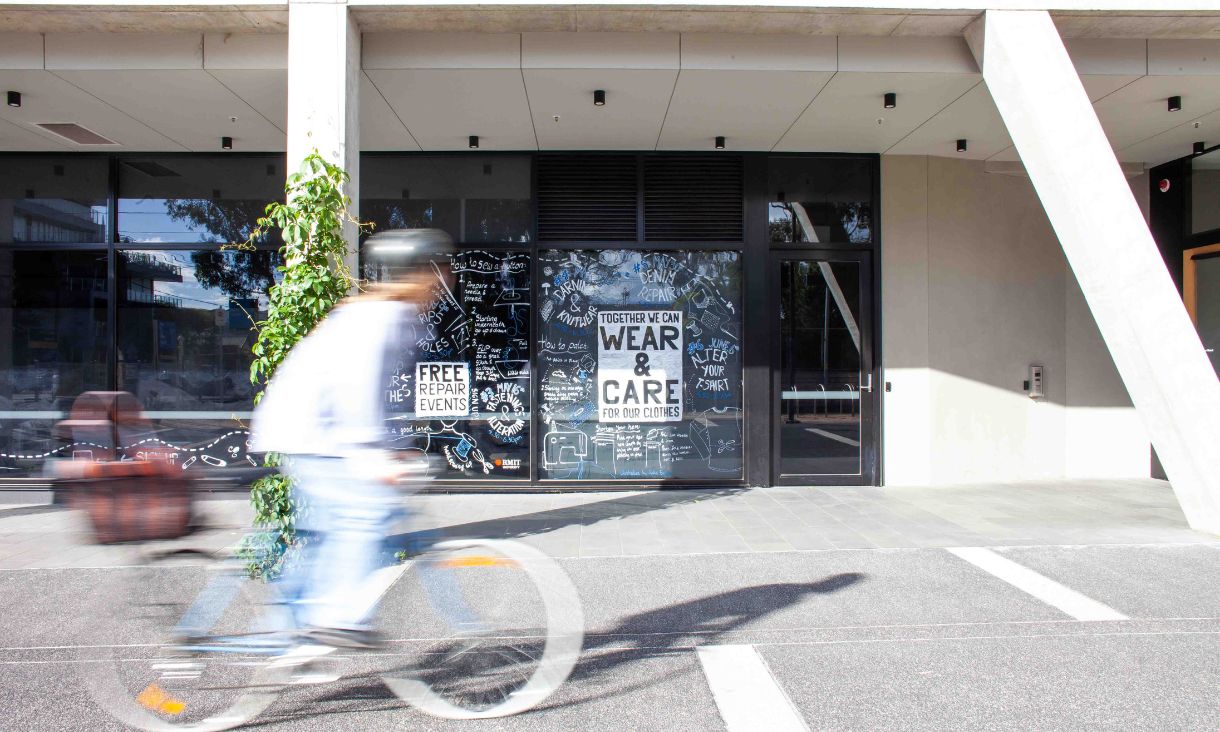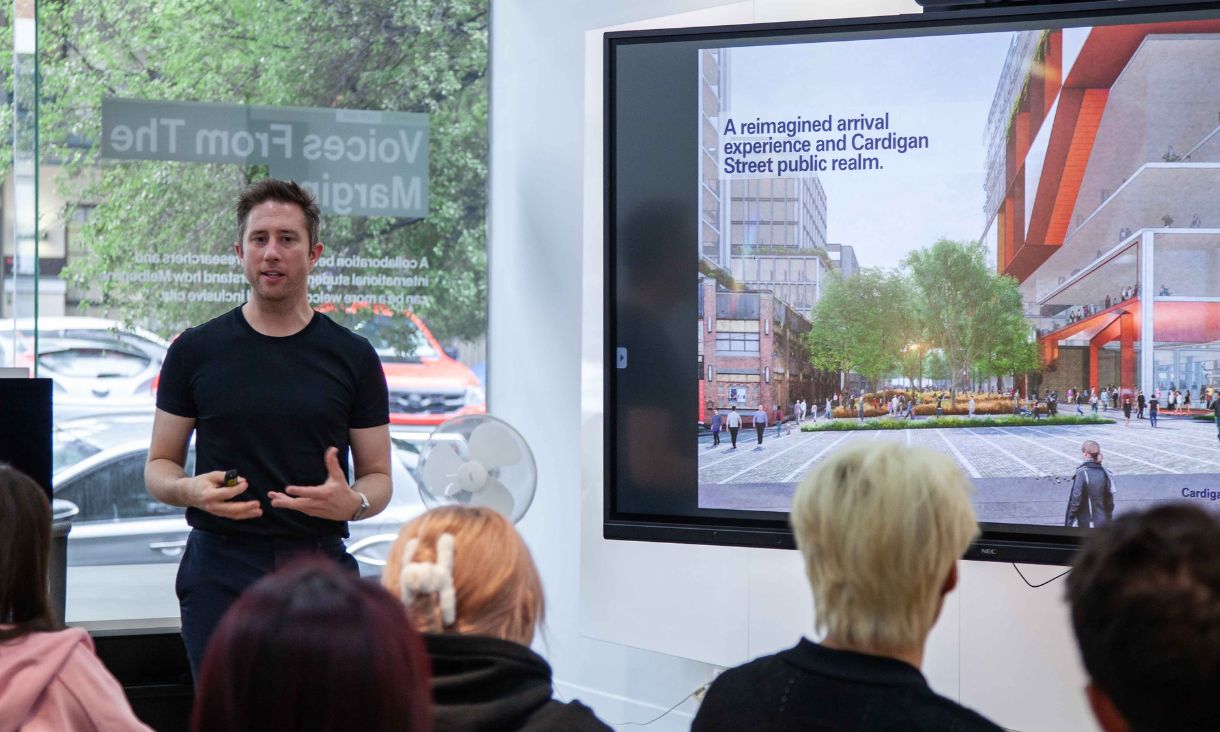Solutions to dealing with furniture hard rubbish and fashion waste are being investigated by RMIT PlaceLab in its latest cycle of research projects seeking answers to vital urban challenges in Melbourne.
Informed by community collaboration, shared knowledge and local expertise, four new research projects are engaging with local community groups and key stakeholders through activities such as surveys, vox pops, exhibitions and workshops.
The projects are hyper-local and site-specific to Brunswick and inner-city Melbourne, with a focus on sustainable practices, urban design and community culture.
One of PlaceLab Brunswick’s two projects – Wear & Care kicked off with a series of hands-on mending sessions that saw locals and RMIT students and staff revive clothing in need of fixing or alteration.
RMIT PlaceLab researcher Hayley Thompson said Wear & Care aims to bring together locals, retailers and researchers to learn about and encourage practices that mend, repair and share clothing, with the aim of building a local response towards a new and sustainable fashion system.
“The Community Repair Series is just one example of how we can be more sustainable with our clothing, but there are so many other opportunities out there and Wear & Care will help us explore new avenues for experiencing fashion that support a more sustainably focused fashion culture,” Thompson said.
 Wear & Care is looking into ways we can be more sustainable with our clothing. Source: RMIT PlaceLab
Wear & Care is looking into ways we can be more sustainable with our clothing. Source: RMIT PlaceLab
Also focusing on sustainable reuse, is one of the PlaceLab Melbourne projects, Flatpack: Repacked.
RMIT researcher, Luke Gebert, said the project will investigate how residents of the City of Melbourne furnish their homes, and aims to provide solutions to hard rubbish waste by investigating the lifecycle of furniture in the City of Melbourne.
“By determining the mechanisms and motivations that shape the purchasing and disposing of furniture in urban settings, our research will advise short and long-term interventions based on the 4Rs of a circular economy – reduce, reuse, recycle and remove,” Gebert said.
The theme of sustainability will also trickle into PlaceLab Melbourne’s other project, Cardigan Commons, which will explore what it would look like to transform Cardigan Street into an innovative green space that enhances local ecology, environmental health, and community wellbeing.
PlaceLab Brunswick’s second research project, Voice, Vibe and Vision, will take a deep dive into better understanding the area’s unique character amid transformative infrastructure change across its design district.
It will gather local perspectives on the sounds, images, words, stories, and imaginings that create Brunswick’s unique urban character, and result in a compendium that will function as a useful tool to help the Brunswick Design District (BDD) prepare for and respond to future transformative infrastructure changes.
 Brock Hogan speaks to landscape architecture students about the Cardigan Street site for Cardigan Commons. Source: RMIT PlaceLab
Brock Hogan speaks to landscape architecture students about the Cardigan Street site for Cardigan Commons. Source: RMIT PlaceLab
RMIT PlaceLab aims to create real-world, place-based solutions for liveability, resilience, and inclusivity that can then be delivered by local government and place-making partners.
RMIT PlaceLab is supported through the Victorian Higher Education State Investment Fund (VHESIF) to promote urban improvement, inclusion and access, economic growth, productivity, jobs, and social impact.
There are a range of ways to get involved in RMIT PlaceLab. Those interested are encouraged to connect online via the website, Instagram, or LinkedIn. Or alternatively, people can drop in to one of the research studios.







